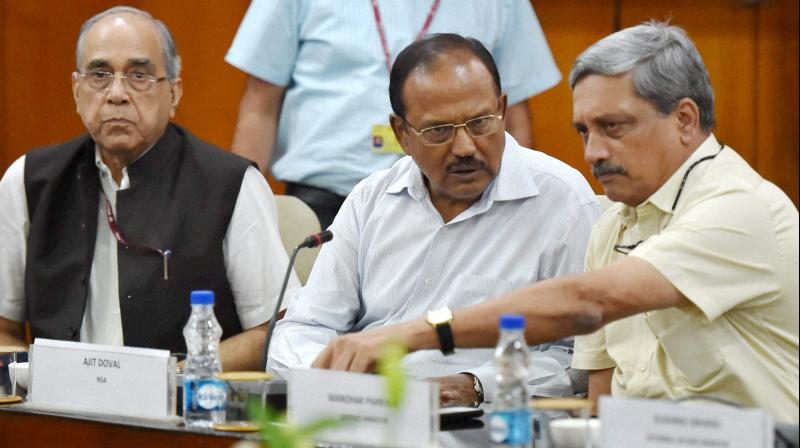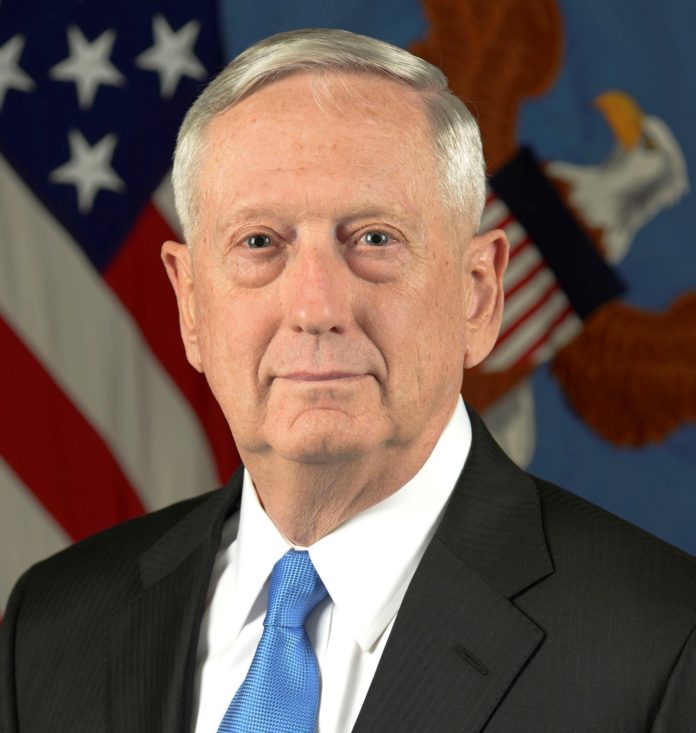Thing are back in full circle for Afghanistan, it is heading for a third resource surge. True to tradition of typical military leadership, the Pentagon has been able to rope in President Donald Trump over the idea that victory is just a few thousand troops, a few war machines and couple of more powerful munitions away. Now till the swearing in of the next President, the US is destined to follow the slippery road of linking victory in Afghanistan to more and more resource addition. And the US military would keep attributing its failures and follies to “cross border inflow from Pakistan”. And the State Department, Capitol Hill, Western media and intelligentsia would robotically follow the lead line to develop a deafening Pakistan bashing chorus.
The Afghanistan factor and contain China policy are beginning to dominate the evolving US attitudes towards Pakistan. Since commencement of CPEC American aid to Pakistan has dropped by over 30 percent, and now the US has decided to withhold remaining Coalition Support Fund reimbursements to Pakistan for fiscal year 2016 after the US Defence Secretary James Mattis told Congress that Islamabad had not taken sufficient action against the Haqqani Network; this amount has already been spent by Pakistan on provision of services to the US for their overseas operations in Afghanistan. Last year also, the US had withheld $300 million in reimbursements, this time it is US$ 350 million. And to contain China, the US is overly empowering India which has strategic implications for Pakistan. Hence, the US is exposing Pakistan to a sort of double squeeze.
The decision of withholding CSF amount may be a precursor to President Donald Trump’s ongoing South Asia Policy Review that is likely to suggest hardening its approach towards Pakistan to crack down on militants launching strikes in Afghanistan. Pakistan has rejected the recent US State Department’s annual assessment that it did not take substantial action against the Afghan Taliban or Haqqani Network. Saner voices from within the US are advising the administration that a friendly Pakistan is indispensable for American success in Afghanistan. While government departments are churning out anti-Pakistan bias in their reports, a number of articles and articulations are arguing that any attempt to coerce or isolate Pakistan will lead the country to move closer to China and Russia. And that after CPEC, the US has lost the requisite leverage to effectively arm-twist Pakistan.
There is no military solution to the conflict in Afghanistan therefore the US focus should be on a politically negotiated settlement. Pakistan has constructively participated in all initiatives and forums for promoting peace, stability and reconciliation in Afghanistan. Pakistan’s efforts and successes in eradicating the menace of terrorism are numerous. The launch of Operation Khyber-4 is another latest effort in this context. Afghan Ministry of Defence has made cynical comment that operations should be carried out in ‘terrorist centers placed in Lahore, Karachi, Quetta and Peshawar’. Actually Afghanistan is feeling the heat of these operations as these are disrupting the hideouts of TTP in Afghan territory under Afghan tutelage and Indian money. The Afghan side has complained that Pakistan did not consult prior to launch of this operation. Most of such previous consultations had resulted in leak of information to terrorist elements that enabled them to relocate to safer places. Pakistan has rightly responded to Afghan Defence Ministry’s diatribe that it expects trust-based security coordination and cooperation in the fight against their ‘common enemy’.

Pakistan is fully resolved to fight terrorism and has taken strong measures to this effect. Such efforts have met with success, and are acknowledged by a number of countries including the US. Various delegations that recently came to Pakistan from the US and other countries visited the affected areas, including North Waziristan—once the stronghold of Haqqanis — that has been successfully cleansed of terrorism.
The Trump administration’s policy review on Afghanistan is still not complete. But indicators have it that it may be more aimed at maligning Pakistan than setting the Afghan house in order. Secretary Mattis has confirmed that the Trump administration’s new strategy for Afghanistan will have a regional context, including a Pakistan angle. At a news briefing, he said: “You’re right to say that strategy is wrapping all that into a regional context.” He said that while media speculations about the Trump administration sending close to 5,000 additional troops to Afghanistan “may turn out to be right”, the new strategy “also involves, perhaps, changing somewhat what the troops on the ground are doing right now”.
In the meanwhile, the US House of Representatives has approved defence policy bill that imposes restrictions on US assistance to Pakistan. And the US State Department has recently published country-specific report on terrorism, in which Pakistan has been blamed to have safe havens for terrorists, and not taking enough action against the Haqqani Network, Lashkar-e-Taiba and Jaish-e-Muhammad. Pakistan has rejected the report.
In the context of peace in Afghanistan, Pakistan’s position is very consistent and clear. It wants to see peace and stability in Afghanistan, which it firmly believes is in Pakistan’s own interest. Pakistan has whole-heartedly supported all efforts to that end. Pakistan continues to host millions of Afghan refugees for over 3 decades as a sentiment of fraternity, event at the cost of challenges to its economy and security.
Pakistan is also focusing on the wellbeing of Afghan people to offset their decades’ long hardship emanating out of war conditions. To this end, Pakistan has completed numerous projects in health, education and infrastructure development sectors with a financial grant of US$ 500 million. Under Prime Minister’s scheme, 3000 scholarships have been fully availed by Afghan students, while 3000 more have been announced. So far, around 48,000 Afghans have been educated in Pakistan who are now working in Afghanistan. Around one million children of the Afghan refugees are studying in Pakistani schools. During the last meeting at Brussels on reconstruction of Afghanistan, Pakistan again pledged additional US$ 500 million.

Former US Defence Secretary, Chuck Hagel’s statement in 2011 that ‘India finances trouble in Pakistan’, confessions of Commander Kulbhushan Yadav, and voluntary statement made by Ehsanullah Ehsan Jamaat-ul-Ahrar’s former spokesperson, provide adequate corroborative evidence to prove that India is involved in terrorism, terror-financing and subversive activities in Pakistan. Indian Ministers Ajit Doval and Manohar Parrikar have publicly declared that they would use terrorists against Pakistan and they are using Afghan soil and persons for this purpose.
While the dynamics of international effort toward bringing peace to Afghanistan have their high and low side, perpetual sufferings of Afghan people have once again been highlighted by “The 2017 Mid-Year Report on the Protection of Civilians in Armed Conflict in Afghanistan” by the Human Rights Unit of the “United Nations Assistance Mission in Afghanistan” (UNAMA). While describing the situation, UNSG’s Special Representative for Afghanistan and UNAMA head Tadamichi Yamamoto, has used the term “ugly war.”
Report reveals that the 11,418 civilians killed or injured in 2016 has set “a grisly new record” since 2009. The 2017 figures bring the total number of casualties registered by the UN since 2009 to more than 26,500 dead and just under 49,000 injured. Children account for 30 per cent of all civilian casualties, indicating an increase of one percent; and there is an overall rise of 23 per cent in women casualties over the same period last year. There is 43 per cent rise in civilian casualties as a result of aerial operations; roughly two-thirds of those were caused by international and remaining by the Afghan air force. The number of civilians killed and injured by the Afghan Local Police (ALP) has more than doubled.
Tadamichi Yamamoto said, “The human cost of this terrible conflict in Afghanistan is far too high.” He has recommended that “the continued use of indiscriminate, disproportionate and illegal improvised explosive devices is particularly appalling and must immediately stop” UN High Commissioner for Human Rights, Zeid Ra’ad Al Hussein, said: “The statistics in this report, horrifying though they are, can never fully convey the sheer human suffering of the people of Afghanistan”.
UNAMA has reiterated its suggestion that the Taliban and the Afghan government engage in “good-faith systematic tracking of civilian harm” caused by their war. It has also urged the Taliban leadership to ensure implementation of its publicly announced instructions to its combatants for not targeting civilians.
Hopefully, the Trump administration’s forthcoming policy review about Afghanistan would go beyond restating the already hardened positions, take a holistic view and come out with viable solutions.




